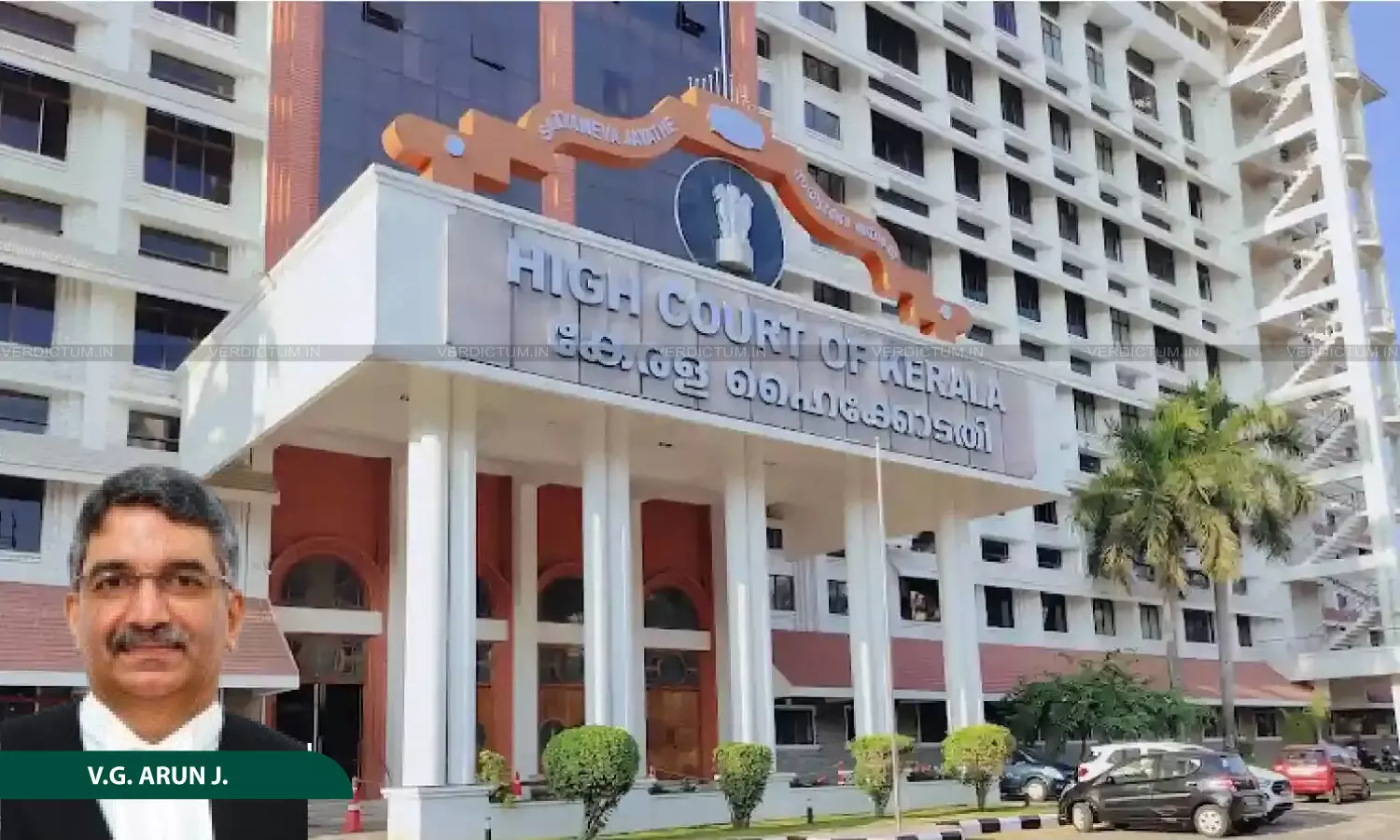
Justice V.G. Arun, Kerala High Court
Deplorable But Not Illegal: Kerala High Court Quashes Case Against Law Student Who Defiled Mahatma Gandhi's Statue
 |
|The Kerala High Court ruled that while the objectionable conduct is undoubtedly immoral, it cannot be termed as illegal in the absence of a law preventing and prescribing punishment for such act.
The Kerala High Court while setting aside proceedings against a law student accused of defiling Mahatma Gandhi Statue located in campus compound has observed that his act maybe deplorable but not illegal as there is no provision in law against it.
The Court was considering a Petition seeking quashing of the case registered against the Petitioner for offences punishable under Sections 153 and 426 of the Indian Penal Code.
The Bench of Justice V. G. Arun held, "....it is essential to note that all immoral acts are not illegal acts. Illegal acts are behaviours or actions explicitly prohibited by law, enforceable by the State, and subject to legal penalties like fines or imprisonment. On the other hand, immoral acts are behaviours considered wrong or unethical according to societal norms, personal values, or moral frameworks, which may not necessarily violate laws. Pertinently, even the Prevention of Insults to National Honour Act, 1971 does not contain any provision against defilement of the images/statues of our national leaders...."
The Petitioner was represented by Advocate S. Rajeev, while the Respondent was represented by Advocate Hashim K.M.
Facts of the Case
It was alleged against the Petitioner, while preparing for the Christmas celebrations at the Bharata Mata School of Legal Studies, of which the Petitioner was a student, placed a pair of cooling glasses over the nose, and a Christmas wreath around the neck, of the statue of Mahatma Gandhi installed inside the campus. The Petitioner was also alleged to have commented that Gandhi is long dead. The alleged act was videographed and posted in the WhatsApp group of students. This led to discontent and complaints being submitted to the Principal of the college. Hence, apart from registration of the crime, the Petitioner was also suspended from the college for five days and made to pay a fine of ₹5000/- to the Kerala State Legal Services Authority.
Counsel for the Petitioner contended that the conduct, though deplorable, cannot result in criminal prosecution since, for attracting the offence under Section 153 of IPC, the objectionable conduct should not only be malignant or wanton, but should also be illegal. It was averred that for an act to be illegal, it should be in contravention of a law or regulation and no Central law or any law enacted by our State prescribes punishment for defiling the statue of Mahatma Gandhi.
The Counsel then contended that in order to attract the offence of mischief, the act must have been done with intent to cause, or with the knowledge that it is likely to cause, wrongful loss or damage to the public or to any person, and should have resulted in destruction or damage to the property or diminution in its value and the Petitioner's conduct doesn't fall within the criteria.
Reasoning By Court
The Court observed that the conduct of the petitioner is deplorable and he should have known that the rights and freedom guaranteed by the Constitution ought to be tempered and moulded by the fundamental duties cast upon him.
Deliberating on whether the Petitioner can be prosecuted and punished for his egregious conduct, the Court ruled that his act may be deplorable but not illegal, as there is no provision in law against it.
"The principle "Nullum crimen sine lege" meaning, "no crime without law", which is fundamental to criminal law, assumes relevance in this context. The principle emphasises that a person cannot be convicted of a crime, unless his act is defined as a crime by law, when it is committed. This principle, also known as the principle of legality, ensures fair warning to individuals about what actions are considered criminal. The outcome of the above discussion is that, while the objectionable conduct of the petitioner is undoubtedly immoral, it cannot be termed as illegal in the absence of a law preventing and prescribing punishment for such act", the Court held.
It also accepted the contention that the offence of mischief punishable under Section 426 of the IPC is not made out.
The Petition was accordingly allowed.
Cause Title: XXX vs. State of Kerala (2025:KER:57179)
Appearances:
Petitioner- Advocate S. Rajeev, Advocate V. Vinay, Advocate M.S. Aneer, Advocate Dipa V., Advocate Sarath K.P., Advocate Anilkumar C.R., Advocate K.S. Kiran Krishnan
Respondent- Advocate Hashim K.M., Advocate Jithin Alexander Sunny, Advocate Mohammad Ashraf, Advocate Aasif Muhammed P.M.
Click here to read/ download Order